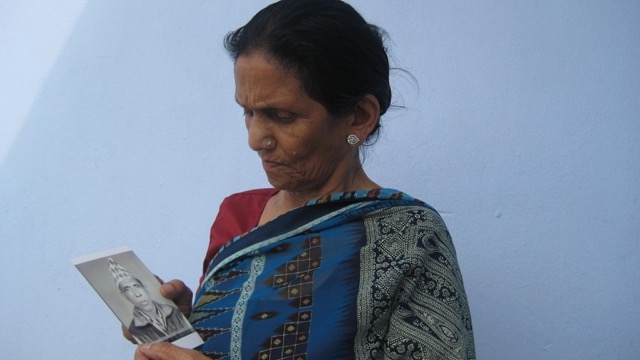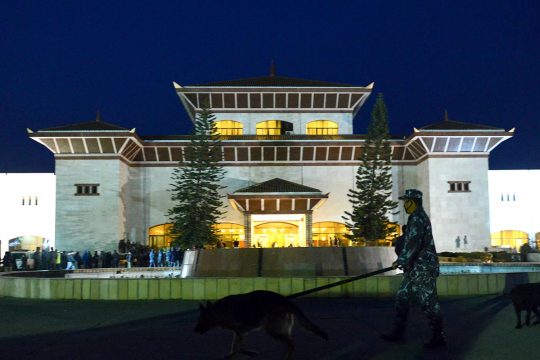This year will mark 10 years since the end of Nepal’s conflict, in which grave human rights abuses were committed by both government forces and Maoist rebels. For years, the United Nations Human Rights Committee (HRC) has repeatedly found Nepal responsible for gross human rights violations against its own citizens, including illegal arrests, torture and enforced disappearances. Yet despite these UN decisions, nothing has been done and not one person has been prosecuted. Many of the suspected perpetrators are state actors. Civil society groups TRIAL, REDRESS and Advocacy Forum today launched a joint campaign demanding justice for victims of international crimes in Nepal.
This campaign, entitled “Real Rights Now”, calls on the government to act on the UN decisions and finally acknowledge the victims’ rights and needs. It includes a website with victims’ stories and tools for action.
To find out more about the campaign, JusticeInfo spoke to Sarah Fulton of REDRESS. In this interview, we asked her first about the Nepal context and the kinds of crimes that were committed:
Sarah Fulton: From 1996 to 2006, Nepal was gripped by conflict between government forces and Maoist rebels. Civilians were caught in the middle, with both sides committing grave human rights violations including extrajudicial executions, enforced disappearances, arbitrary arrests, and torture, including rape and other forms of sexual violence. Across this period, over 17,000 Nepali people lost their lives, and some 1,300 were disappeared. Their fate and whereabouts is still unknown. Many others were subjected to long periods of torture and imprisonment, or displaced from their homes.
Many victims of these crimes have been seeking justice in Nepal since the end of the conflict by lodging complaints with police, through the courts, commissions of inquiry, and the National Human Rights Commission. After nearly ten years a Truth and Justice Commission and Commission on Enforced Disappearances have been established, but these have been controversial among victims, civil society and many in the international community for the lack of consultation in establishing them and for the potential to promote impunity for crimes under international law. Despite all these efforts and despite all the talk of transitional justice processes, none of the crimes have had a proper criminal investigation, not one person has been prosecuted, and none of the victims have received any real reparation.
JusticeInfo: You talk about decisions of the UN Human Rights Committee that have not been implemented by the government of Nepal. Can you give us some examples?
SF: Given the difficulties in achieving justice in Nepal, a number of individuals have taken their cases directly to the UN Human Rights Committee, under a procedure accepted by Nepal (the Optional Protocol procedure). The Committee can examine the cases and decide if Nepal is responsible for a violation of the individual’s rights under the International Covenant on Civil and Political Rights (ICCPR). The Committee has already decided 11 of the cases brought by victims represented by the organizations behind this campaign. In each case the Committee found multiple violations of core human rights and required the government of Nepal to respond by promptly investigating the crimes, prosecuting those responsible, making changes to its legislation and providing reparation to the victims, including compensation and rehabilitation.
The cases include a number of cases of enforced disappearance, where the Committee has told Nepal that it must reveal the whereabouts of the missing person and provide information to the family on the results of the investigation. The first of these cases – concerning the disappearance of political activist Surya Prasad Sharma – was decided in 2008. However despite meetings between Mr Sharma’s wife and government officials and regular advocacy by her legal representatives, no action has been taken to investigate his whereabouts, and only a very small amount of what the government calls “interim relief” has been provided to Mrs Sharma. In effect nothing has been done to implement the Committee’s decision in more than seven years. There are also a number of cases of torture, where the victims were released but require compensation and rehabilitation for the multitude of impacts that the torture has had on their lives. Again, only a very small amount of “interim relief” has been provided in some cases, no investigations have been carried out, no person has been prosecuted, and the law has not even been changed to make torture a crime.
JusticeInfo: Do you think this reflects a lack of political will or weaknesses in the justice system of Nepal?
SF: In our experience, the failure to implement views of the Committee appears to reflect both a lack of political will and weaknesses in coordination between government agencies responsible for the various aspects of what needs to be done to provide justice to victims. We’ve seen victims being shunted between different departments, having their letters not responded to, being made to wait years for even very small amounts of interim relief and being asked by a government agency to pay back money provided as interim relief by another. After all they have done to bring their cases to the Committee and get recognition that Nepal is responsible for serious violations of their rights, these individuals need to be treated seriously and with respect by the government, whose responsibility it is to proactively address each of the Committee’s recommendations. The victims' efforts to achieve justice are made particularly difficult by the fact that nearly all of the alleged perpetrators in these particular cases are state actors. We are hoping that our campaign will lead to greater coordination and mobilization within the government to lead to a proactive and appropriate response in every case decided by the Committee.
JusticeInfo: Of what does your campaign consist, and what do you hope to achieve?
SF: The campaign begins this week with the launch of a website which brings together in Nepali and English the stories of the individuals who have taken their cases to the UN Human Rights Committee, a summary and copies of the Committee’s decisions, status of implementation in each of those cases, and further background and resources. As well as this information, the site provides a platform for victims to express their own views about their cases, through interviews and written pieces, which will be regularly added to the site. It is hoped that the website will provide a useful resource for other survivors, journalists, government officials and members of civil society. We’re promoting this with a social media campaign, and will follow-up with pieces in the local media throughout the year and further social media activity with easy to understand information about the cases and the process of implementation. We are also hoping to hold a number of forums with different stakeholders in the process – victims, officials and their lawyers – to constructively engage on how to better coordinate responses and proactively implement the Committee’s views.







